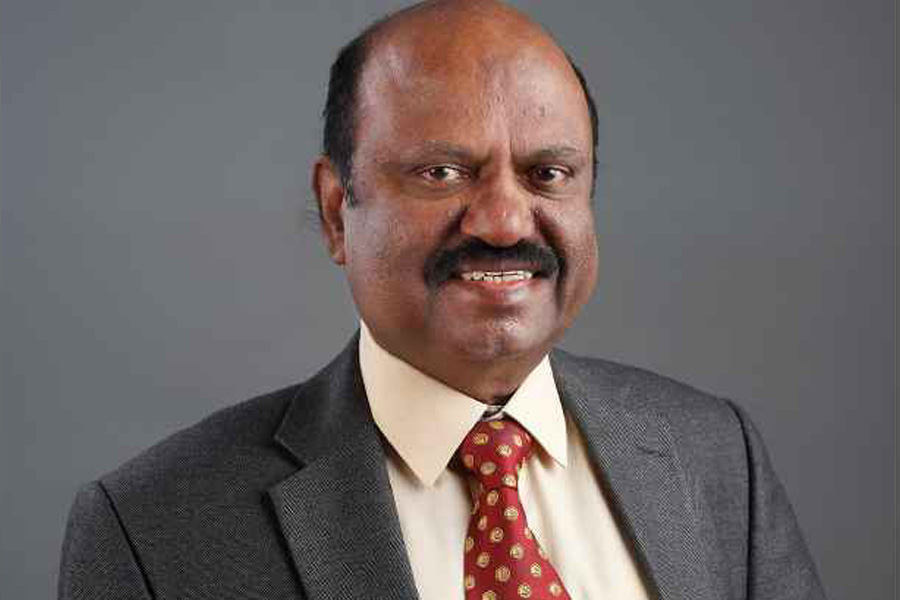Speaker Biman Banerjee on Wednesday said there was no illegality or anomaly in conducting the business of the Bengal Assembly, including tabling the Budget on Thursday, without the governor's speech and cited two prior incidents in Parliament as precedents.
"Many people, including honourable members, came to me and asked if the House can continue without the governor's speech. The (parliamentary) rules and the Constitution of India have cleared... that there is no irregularity or illegality in it. Therefore the House continued with its business after it was reconvened by me," the Speaker said on the floor of the Assembly while speaking on the "breach in convention" by "starting" the Budget session without governor C.V. Ananda Bose's address.
"As the custodian of the House, the Speaker has to ensure that the House is run by the rules of the House and also the Constitution of India," Banerjee added before going into details to make it clear that there was no violation of law by passing the state Budget on Thursday with the governor's speech.
Sources said the decision of the state to start the Budget session on Monday, without the speech of Bose, had raised eyebrows in Raj Bhavan and elsewhere.
Although Raj Bhavan did not issue any statement on the issue, a source confirmed the office of the governor had been monitoring all "developments" in connection with the Assembly.
As it was the first time in recent memory that the Bengal Assembly would table its Budget or annual financial accounts on Thursday without the address of the governor, many, including those in the ruling dispensations questioned if it was right or legal.
Speaker Banerjee, in the second half of the Assembly, cited two precedents in Lok Sabha in 1962 and 2003, when the House was adjourned sine die and reconvened in the new year without the Presidential address.
"On 11 December, 1962, the third Lok Sabha was adjourned and it was reconvened on 21 January 1963... the President of India addressed the House on 18th Feb 1963. Again the 14th session of 13 Lok Sabha was adjourned sine die on 23rd December 2003 and it was reconvened and commenced on 29th January 2004 without the presidential address," said Banerjee, before saying that the Bengal Assembly's decision was not wrong.
A source in Raj Bhavan raised two important questions. First, if it is a fresh Budget session, how was it started without the governor's speech. Second, if it was a continuation of its earlier session, how can the state government pass two budgets in a year.
"There are several instances in Lok Sabha when the House was adjourned and thereafter although it was reconvened in the next year, it was not treated as a fresh session that passed several bills including annual financial statements (budget)," he said, adding this Budget session in the Assembly was not a new one as it commenced in December last year and was adjourned sine die (without a future date being fixed or arranged).
"On 7th December, 2023, after the conclusion of the business of the House on that day, I announced... sine die. Since it has not been prorogued by the governor... I have reconvened the House," said the Speaker.
Economist and BJP MLA Ashok Lahiri pointed out that the House should consider the law by letter, not spirit.
"In 1962, the country was involved in a sudden attack by China... so they had to call the session sine die and it was not prorogued," Lahiri said in an attempt to remind the House that the situation in Bengal now cannot be compared to what happened in 1962 in Parliament.
Speaker Banerjee dismissed his logic by referring to the instance of 2004 when Parliament proceedings took the same course as in 1962.











